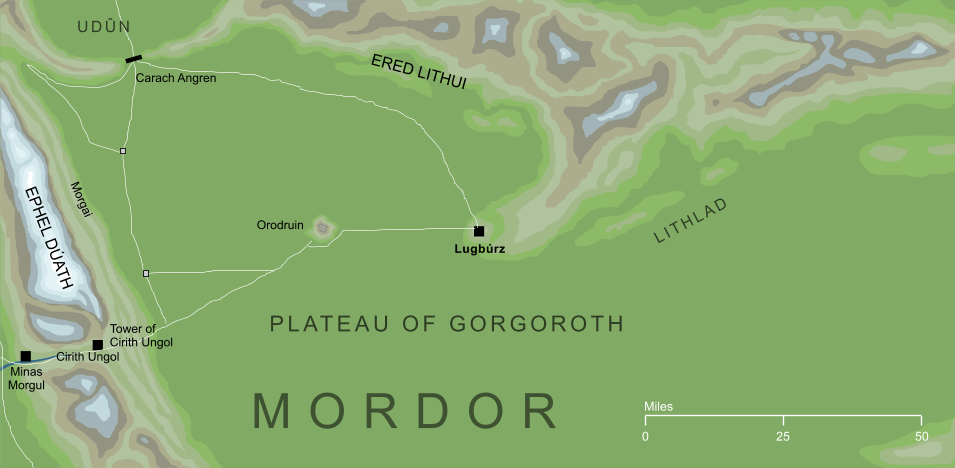- Cities and buildings
- Fields, plains and deserts
- Forests
- Hills and mountains
- Islands and promontories
- Lands, realms and regions
- Rivers and lakes
- Seas and oceans


 |
||||||
|


Which personality type are you?
Take the Free mydiscprofile Personality Test to discover your core personality and your ideal job.   Which personality type are you? |
|
Dates
First built between c. II 1000 and c. II 1600; destroyed in II 3441; rebuilding began in III 2951; finally destroyed in III 3019
Location
On an outcrop of Ered Lithui, in the northwest of Mordor
Origins
Built by Sauron
Pronunciation
Uncertain, but probably lu'gboorz
Meaning
Probably 'Dark Tower'1
Other names
Indexes: About this entry:
|
LugbúrzSauron’s Dark Tower
One of the few attested names to be recorded from the Black Speech, Lugbúrz was the name used by the servants of Sauron for his Dark Tower in Mordor, more commonly known by its Elvish name of Barad-dûr. The term was generally used by the Orcs in Sauron's service not only for the Dark Tower itself, but also by association for their high command, or for Sauron himself.2 Orcs in general were contemptuous of others of their kind, but the Orcs who served away from Lugbúrz had special disrespect for those within the Tower. To the Uruk-hai of Isengard, those dwelling in the depths of Mordor were simply cowards. Closer at hand, Orcs stationed elsewhere in Mordor feared the occupants of Lugbúrz, expecting spies from there within their own ranks, and fearing to send bad reports to the Dark Tower. Lugbúrz for its own part had little confidence or trust in other garrisons of Orcs, even within Mordor. So, when the Orcs of Cirith Ungol captured the Ring-bearer (an event that might have won the War of the Ring for Sauron) they had only vague instructions to follow. Even those were enough to give the Orcs a hint that they held something vital that Lugbúrz wanted, and so spark a deadly conflict among them that allowed Frodo Baggins to escape their clutches. Notes
See also...Indexes: About this entry:
For acknowledgements and references, see the Disclaimer & Bibliography page. Original content © copyright Mark Fisher 1999, 2001, 2012, 2015, 2021. All rights reserved. For conditions of reuse, see the Site FAQ. Website services kindly sponsored by myDISCprofile, the free online personality test.Take the FREE myDISCprofile personality test to discover your core personality and your ideal job. |